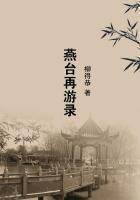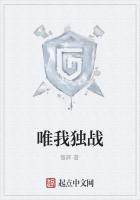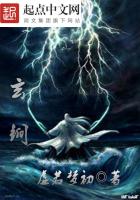I was nearing the gate again, the dust flying from my moccasined feet, the sight of the stalwart Tom giving me courage again.Suddenly, with the deftness of a panther, an Indian shot forward and lifted me high in his arms.
To this day I recall my terror as I dangled in mid-air, staring into a hideous face.By intuition I kicked him in the stomach with all my might, and with a howl of surprise and rage his fingers gripped into my flesh.The next thing I remember was being in the dust, suffocated by that odor which he who has known it can never forget.Amedley of discordant cries was in my ears.Then I was snatched up, bumped against heads and shoulders, and deposited somewhere.Now it was Tom's face that was close to mine, and the light of a fierce anger was in his blue eyes.
``Did they hurt ye, Davy?'' he asked.
I shook my head.Before I could speak he was at the gate again, confronting the mob of savages that swayed against the fence, and the street was filled with running figures.A voice of command that I knew well came from behind me.It was Colonel Clark's.
``Stay where you are, McChesney!'' he shouted, and Tom halted with his hand on the latch.
``With your permission, I will speak to them,'' said Monsieur Gratiot, who had come out also.
I looked up at him, and he was as calm as when he had joked with me a quarter of an hour since.
``Very well,'' said Clark, briefly.
Monsieur Gratiot surveyed them scornfully.
``Where is the Hungry Wolf, who speaks English?'' he said.
There was a stir in the rear ranks, and a lean savage with abnormal cheek bones pushed forward.
``Hungry Wolf here,'' he said with a grunt.
``The Hungry Wolf knew the French trader at Michilimackinac,'' said Monsieur Gratiot.``He knows that the French trader's word is a true word.Let the Hungry Wolf tell his companions that the Chief of the Long Knives is very angry.''
The Hungry Wolf turned, and began to speak.His words, hoarse and resonant, seemed to come from the depths of his body.Presently he paused, and there came an answer from the fiend who had seized me.After that there were many grunts, and the Hungry Wolf turned again.
``The North Wind mean no harm,'' he answered.``He play with the son of the Great White Chief, and his belly is very sore where the Chief's son kicked him.''
``The Chief of the Long Knives will consider the offence,'' said Monsieur Gratiot, and retired into the house with Colonel Clark.For a full five minutes the Indians waited, impassive.And then Monsieur Gratiot reappeared, alone.
``The Chief of the Long Knives is mercifully inclined to forgive,'' he said.``It was in play.But there must be no more play with the Chief's son.And the path to the Great Chief's presence must be kept clear.''
Again the Hungry Wolf translated.The North Wind grunted and departed in silence, followed by many of his friends.And indeed for a while after that the others kept a passage clear to the gate.
As for the son of the Great White Chief, he sat for a long time that afternoon beside the truck patch of the house.And presently he slipped out by a byway into the street again, among the savages.His heart was bumping in his throat, but a boyish reasoning told him that he must show no fear.And that day he found what his Colonel had long since learned to be true that in courage is the greater safety.The power of the Great White Chief was such that he allowed his son to go forth alone, and feared not for his life.Even so Clark himself walked among them, nor looked to right or left.
Two nights Colonel Clark sat through, calling now on this man and now on that, and conning the treaties which the English had made with the various tribes--ay, and French and Spanish treaties too--until he knew them all by heart.There was no haste in what he did, no uneasiness in his manner.He listened to the advice of Monsieur Gratiot and other Creole gentlemen of weight, to the Spanish officers who came in their regimentals from St.Louis out of curiosity to see how this man would treat with the tribes.For he spoke of his intentions to none of them, and gained the more respect by it.Within the week the council began; and the scene of the great drama was a field near the village, the background of forest trees.Few plays on the world's stage have held such suspense, few battles such excitement for those who watched.Here was the spectacle of one strong man's brain pitted against the combined craft of the wilderness.In the midst of a stretch of waving grass was a table, and a young man of six-and-twenty sat there alone.Around him were ringed the gathered tribes, each chief in the order of his importance squatted in the inner circle, their blankets ****** patches of bright color against the green.Behind the tribes was the little group of hunting shirts, the men leaning on the barrels of their long rifles, indolent but watchful.Here and there a gay uniform of a Spanish or Creole officer, and behind these all the population of the village that dared to show itself.
The ceremonies began with the kindling of the council fire,--a rite handed down through unknown centuries of Indian usage.By it nations had been made and unmade, broad lands passed, even as they now might pass.The yellow of its crackling flames was shamed by the summer sun, and the black smoke of it was wafted by the south wind over the forest.Then for three days the chiefs spoke, and a man listened, unmoved.The sound of these orations, wild and fearful to my boyish ear, comes back to me now.Yet there was a cadence in it, a music of notes now falling, now rising to a passion and intensity that thrilled us.
Bad birds flying through the land (the British agents)had besought them to take up the bloody hatchet.They had sinned.They had listened to the lies which the bad birds had told of the Big Knives, they had taken their presents.But now the Great Spirit in His wisdom had brought themselves and the Chief of the Big Knives together.















